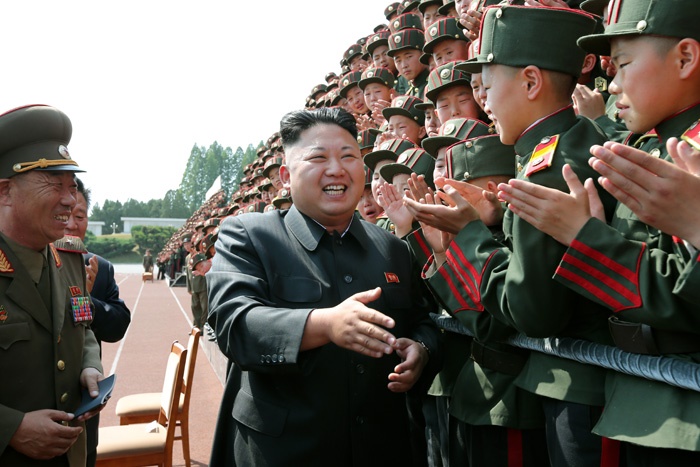The Peninsula
North Korea’s Nuclear Test and What Comes Next

By Troy Stangarone
In the aftermath of what appears to be a fourth nuclear test by North Korea the question becomes, what comes next? North Korea is claiming to have tested a miniaturized hydrogen bomb, which would demonstrate a new level of technical sophistication on its part. If confirmed, this would only add to the growing nuclear threat from North Korea. In the next few days and weeks many of the actions of the United States, South Korea, and other governments will fall largely into four categories: confirmation, coordination, sanctions, and policy reviews.
Confirming North Korea’s Nuclear Test
While the United States, China, South Korea, and European agencies have all indicated they detected a manmade tremor near the site of North Korea’s test facilities, confirming North Korea’s claim of a hydrogen bomb will likely take weeks if not longer. Air samples for radioactive particles will need to be gathered to try and determine the radiological makeup of the test. This process could be made more difficult depending on North Korea’s ability to seal the test chamber to preclude any radioactive particles from leaking into the atmosphere.
However, early indications are that the current test was likely too small to be a hydrogen bomb given its estimated yield from the detected tremors. Though, one possibility is that North Korea used tritium, a radioactive form of hydrogen, to enhance a uranium or plutonium nuclear test.
Coordinating with Allies and in the United Nations
A first important step will be consulting and coordinating any U.S. response with South Korea and Japan. Both states are on the front lines of any North Korean nuclear provocation and ensuring that all three parties are on the same page is key to ensuring a successful response to North Korea’s latest test.
The United States will also need to coordinate with members of the UN Security Council on a response and likely new round of sanctions. Despite current tensions with Russia, Moscow played a constructive role in resolving the nuclear crisis with Iran and also shares interests with the United States in seeing a denuclearized Korean peninsula. However, negotiating a response to Pyongyang’s actions that is more than symbolic while at the same time acceptable to China and Russia will require concerted diplomacy by the United States, nations such as South Korea and Japan, and other members of the Security Council.
Potential Sanctions Options
One of the responses to North Korea’s nuclear test will likely be a new round of sanctions. There are three potential ways these could develop. As mentioned above the Obama Administration will work with members of the UN Security Council on developing a response. However, there are two other domestic paths through which an increase in U.S. sanctions against North Korea could take place.
The first avenue would be through an Executive Order. The Obama Administration could either issue a new Executive Order or utilize some the increasing scope provided in the Executive Order issued in response to the Sony Hack to go after financial targets.
Congressional action could be another route to new sanctions against North Korea. In the 113th Congress, House Foreign Affairs Committee Chairman Ed Royce introduced the North Korea Sanctions Enforcement Act. While the legislation was passed by the House of Representatives the Senate did not take action. Similar legislations was introduced in the current Congress by Chairman Royce and in response North Korea’s current nuclear test we should expect either the North Korea Sanctions Enforcement Act or some other type of similar legislation for new sanctions on North Korea to be pushed in Congress again.
While new sanctions in one form or another will be placed on North Korea, the one challenge to keep in mind is that so far North Korea has demonstrated a willingness to continue to pursue its nuclear program despite costs imposed on it by the international community. Any new sanctions efforts will need to address this challenge if they are to be more than symbolic.
Review of North Korea Policy
With North Korea having conducted a fourth nuclear test and demonstrated its desire last year to develop a second strike capability with its submarine-launched ballistic missile tests last year it raises the question of whether countries in the region need to undertake a policy review.
While relations between China and North Korea have been cool since Xi Jinping and Kim Jong-un came to power there remains a reluctance on China’s part to pressure North Korea. If past experience is any guide, China will likely apply a degree of economic pressure over the near term to express its displeasure with Pyongyang, but a fourth test raises the question of whether China needs to curtail its economic engagement with Pyongyang more permanently.
For the United States there will likely be increased pressure to enter into talks with North Korea to slow its nuclear program at a minimum, even if that means setting aside U.S. and allied insistence that North Korea demonstrate its commitment to denuclearization prior to entering into talks.
However any policy review will largely rest on a determination of North Korea’s motivations for advancing its nuclear program. If the advancements are being driven by internal regime dynamics from the transition to Kim Jong-un, both increased pressure or dialogue may have limited effect until the transition has concluded and North Korea is in a position to engage on its nuclear program.
Troy Stangarone is the Senior Director of Congressional Affairs and Trade for the Korea Economic Institute of America. The views expressed here are the author’s alone.
Photo from Prachatai’s photostream on flickr Creative Commons.
